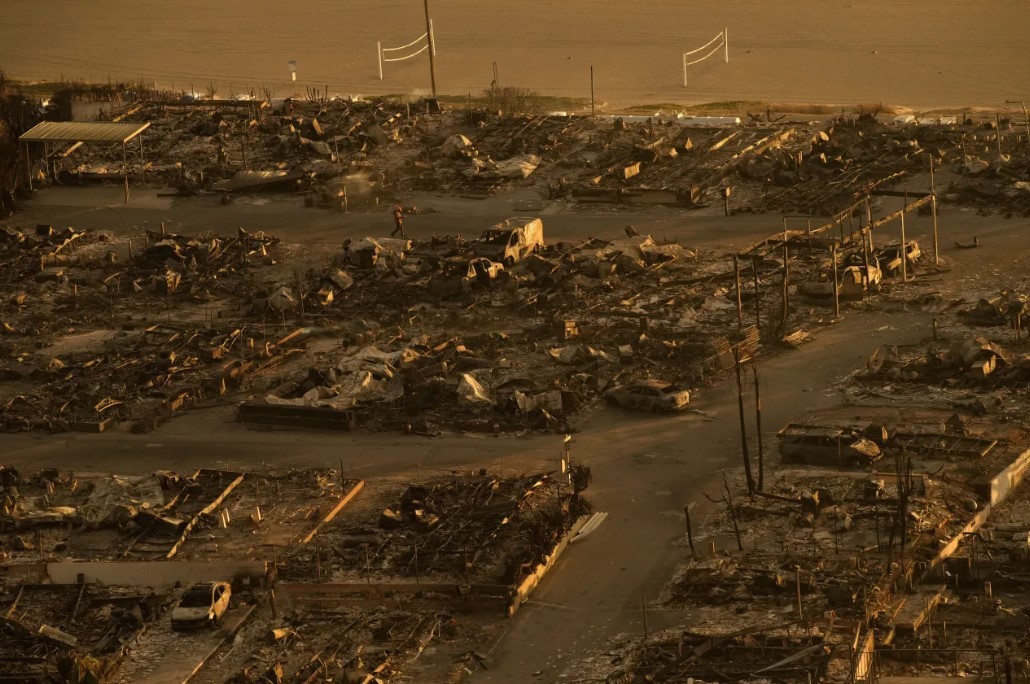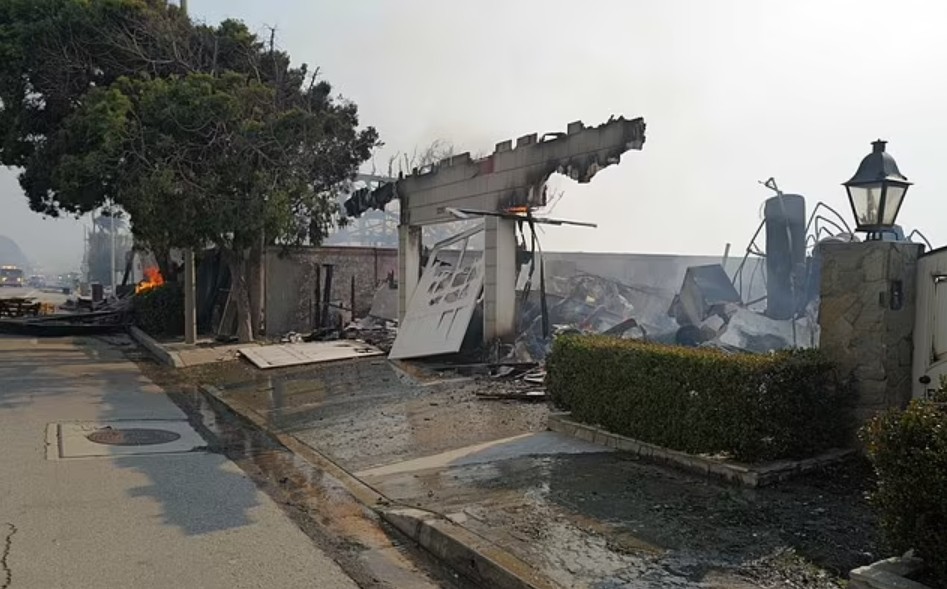Bank's HELOC Cuts Leave Palisades Fire Survivors Furious
Despite their properties remaining unscathed by the flames, several residents received abrupt notifications from their banks informing them of significant reductions in their Home Equity Lines of Credit (HELOCs).
This move has ignited a wave of frustration and anger among the affected homeowners, who feel penalized despite their homes surviving the disaster.
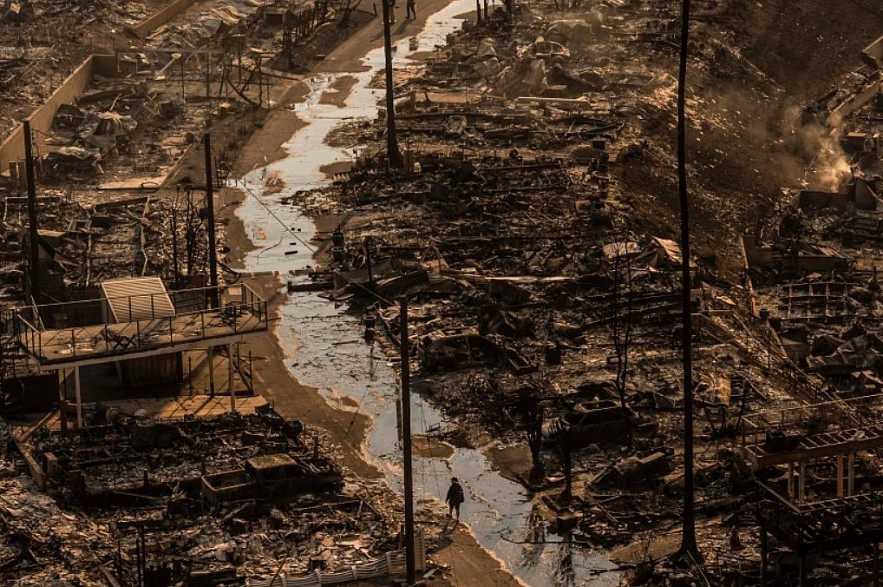 |
| Homeowners in Palisades Fire burn area angered by bank’s decision |
The Unforeseen Financial Blow
Lisa Pelton, a resident of Mandeville Canyon, was among those affected. She recounted receiving a letter from City National Bank just days after the fire commenced, stating that her HELOC was being reduced by $50,000. This decision was justified by the bank on the grounds that properties in the wildfire-affected area had "declined significantly" in value. Pelton expressed her dismay, stating, "I was appalled. I thought it was unconscionable what they did. They sent this letter out four days after the fire started to everyone in a certain ZIP code."
The bank's preemptive action, taken without individual property assessments, has been widely criticized. Consumer reporter David Lazarus highlighted the issue, noting that while financial institutions have a responsibility to minimize risk after natural disasters, the speed and lack of due diligence in this instance were concerning. He remarked, "What should be concerning to homeowners is the speed at which City National Bank moved and the fact that it didn’t seem to do any due diligence whatsoever. It just cut first and asked questions later."
Understanding HELOCs and Their Vulnerabilities
A Home Equity Line of Credit (HELOC) is a revolving line of credit that allows homeowners to borrow against the equity of their homes. The available credit is typically determined by the home's appraised value minus any outstanding mortgage balances. Banks periodically assess the value of properties tied to HELOCs to manage their risk exposure. In areas recently affected by natural disasters, perceived or actual declines in property values can prompt banks to reduce or freeze these credit lines to mitigate potential losses.
However, such actions can have significant repercussions for homeowners, especially those relying on HELOCs for major expenses like home improvements, education, or emergency funds. An unexpected reduction can disrupt financial plans and erode trust between consumers and financial institutions.
The Broader Impact of Wildfires on Homeowners
The Palisades Fire, which erupted on January 7, 2025, wreaked havoc across Los Angeles County, destroying nearly 14,000 structures and claiming the lives of at least 28 people. In response to the widespread devastation, the Los Angeles County Board of Supervisors implemented special safety provisions and relief measures in the rental market. These measures aimed to support displaced residents by easing short-term rental restrictions and ensuring tenants could accommodate affected family members and their pets.
Despite these efforts, homeowners whose properties were destroyed or damaged face ongoing financial obligations. Many are still required to continue paying their mortgages and property taxes, even if their homes are uninhabitable. While major lenders like Fannie Mae and Freddie Mac have introduced 12-month forbearance plans, allowing for reduced or suspended mortgage payments without penalties, the long-term financial strain remains a significant concern.
Insurance Challenges and the Mortgage Market
The recent wildfires have also highlighted challenges within the insurance and mortgage industries. While banks are generally protected from direct losses due to insurance requirements on mortgages, the increasing frequency of natural disasters poses a threat to the sustainability of mortgage lending, particularly in high-risk areas.
The refusal of insurers to write new policies in fire-prone regions could eventually harm the mortgage market. In 2023, approximately $13 billion of mortgage loans were secured on homes in ZIP codes affected by the fires. As climate-related catastrophes become more common, rising insurance premiums may affect who can qualify for mortgages, making lenders more cautious.
A Call for Advocacy and Vigilance
The experience of homeowners like Lisa Pelton underscores the importance of vigilance and self-advocacy in the face of financial institutions' decisions. Pelton's proactive approach—contacting City National Bank to challenge the reduction—resulted in the full restoration of her HELOC. Consumer advocates emphasize that homeowners must be prepared to defend their interests, especially during times of crisis. Lazarus noted, "Clearly this is a time when people are feeling very vulnerable, and they might not respond in an aggressive or responsive manner. If you don’t step up and defend yourself, nobody will for you."
In conclusion, the aftermath of the Palisades Fire has illuminated the complex interplay between natural disasters, financial institutions, and homeowners. While banks have a duty to manage risk, their actions must be balanced with empathy and due diligence to avoid further burdening those already affected by tragedy. Homeowners, in turn, should remain informed and proactive, ensuring their rights and financial well-being are safeguarded during such challenging times.
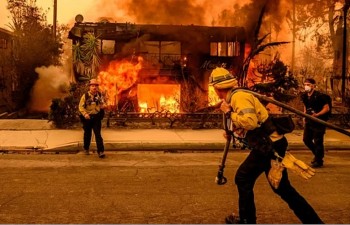 Wildfires in Los Angeles: About 30 Arrests, Burglar Dressed as Firefighter Wildfires in Los Angeles: About 30 Arrests, Burglar Dressed as Firefighter Since the fires broke out last Tuesday, authorities have arrested at least 29 individuals for various violations, including looting, curfew breaches, and suspected arson. |
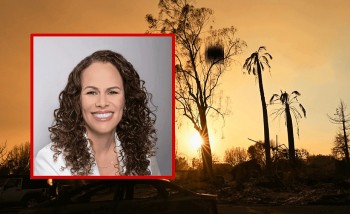 Who Is Janisse Quiñones? Los Angeles Water Chief Knew about Empty Reservoir Before Fires Who Is Janisse Quiñones? Los Angeles Water Chief Knew about Empty Reservoir Before Fires The $750,000-a-year Los Angeles water chief, Janisse Quiñones, has faced criticism for overseeing the draining of the Santa Ynez Reservoir during a serious water shortage. |
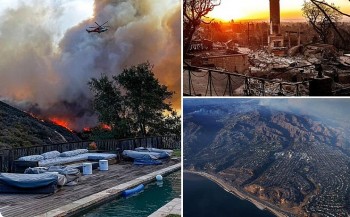 Los Angeles Wildfires: Ongoing Investigation into Multiple Suspects Behind the Devastation Los Angeles Wildfires: Ongoing Investigation into Multiple Suspects Behind the Devastation This article delves into the investigation surrounding the Palisades Fire, Eaton Fire, and Hurst Fire, shedding light on possible arson suspects, related incidents, and the ... |
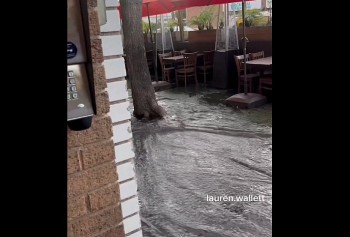 Why Water Flooded Streets Amid Los Angeles Wildfires? Why Water Flooded Streets Amid Los Angeles Wildfires? A viral video depicting water flooding Los Angeles streets amid the fires has sparked widespread debate and concern among residents and officials alike. |

